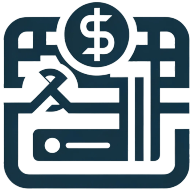8 Questions You Should Ask Before Choosing a Payroll Technology Provider
Choosing the right payroll technology provider is a critical decision that can significantly impact a company's operations and compliance. This article presents expert insights on the key questions businesses should ask before making this important choice. From multi-state compliance to scalability and future adaptability, these considerations will help ensure a robust and efficient payroll system that grows with your organization.
- Plan for Multi-State Compliance Early
- Verify Provider's Compliance Safeguards
- Test Complex Pay Structure Flexibility
- Evaluate Software Integration Capabilities
- Invest in Scalable Payroll Technology
- Consider Future Adaptability in Payroll Systems
- Time Payroll System Transitions Strategically
- Ensure Payroll System Scales with Business
Plan for Multi-State Compliance Early
One of the biggest challenges I faced when scaling payroll for my growing recruiting business was managing compliance across multiple states. We had worked solely in Texas for so long that those first steps outside the state brought a whole new world of tax laws, wage requirements, and labor regulations.
To overcome this, we invested in a cloud-based payroll system that automatically adjusted for local tax and labor laws, ensuring accuracy and compliance without requiring constant manual oversight. We also consulted with a payroll specialist to establish best practices and avoid costly mistakes.
My key piece of advice for others is to get ahead of compliance issues early. As soon as you start hiring across state lines, implement a payroll solution that scales with you and seek expert guidance to prevent small mistakes from turning into major liabilities.

Verify Provider's Compliance Safeguards
One crucial question employers should ask potential payroll providers is, "How do you ensure compliance with evolving tax laws and award interpretations, and what checks are in place to prevent errors?"
In the answer, look for a provider that explains both their automated and manual processes. They should mention tools like automated award interpretation, regular software updates aligned with the latest tax and compliance requirements, and built-in error-checking mechanisms. Additionally, the provider should have a clear quality control process involving experienced payroll specialists who verify accuracy on a regular basis.
A red flag would be vague responses that don't outline specific safeguards or continuous compliance updates. An ideal provider should demonstrate a proactive approach to staying compliant, ensuring both accuracy and peace of mind for employers.

Test Complex Pay Structure Flexibility
Looking back, I wish I had asked more about how flexible the system was when it came to handling commission-based pay structures. At the time, we assumed most platforms could handle it smoothly, but once we started running more complex pay setups, we encountered some limitations that slowed us down.
My advice is to not just ask if a system can technically support your needs. Instead, inquire about how easy it is to customize, update, and scale as your team grows. Run through real examples of your pay scenarios during the demo process. It's better to find out early if something's going to be a headache later.

Evaluate Software Integration Capabilities
One question I wish I had asked before choosing our current payroll technology provider is: "How seamlessly does your system integrate with existing HR, accounting, and reporting software?" Integration issues can create hidden risks, inefficiencies, and additional costs, especially if you're dealing with manual data transfers or workarounds after implementation.
Based on experience, I would advise thoroughly evaluating the provider's track record in integration capabilities and requesting specific examples or case studies demonstrating successful integrations. Understanding upfront how well the payroll solution interacts with your other systems helps minimize operational disruptions, reduces compliance and data integrity risks, and ensures a smoother, more efficient payroll process overall.

Invest in Scalable Payroll Technology
One challenge I encountered when scaling payroll for my growing business was managing the increased complexity of payroll processing as we expanded our team and hired across multiple states with varying tax laws. The complexity grew not only in terms of compliance but also in ensuring accurate deductions, benefits administration, and overtime calculations. To overcome this, we implemented a robust payroll software solution that integrated seamlessly with our HR system and included automated updates for state and federal tax changes. This allowed us to centralize payroll, reduce human error, and stay compliant with local laws without having to manually track each employee's location or benefits package. My key piece of advice for others is to invest early in scalable payroll technology. As your business grows, manual processes become unsustainable, and automation can save you both time and potential legal headaches, ensuring smooth and compliant payroll management.

Consider Future Adaptability in Payroll Systems
When choosing a payroll technology provider, it's essential to ask how their system will adapt to future business needs and compliance changes. Businesses evolve, necessitating a flexible payroll system to avoid operational and compliance challenges. For example, a company that prioritized cost and usability might struggle as it expands into new regions and faces complex local tax laws, highlighting the importance of adaptability in a payroll solution.

Time Payroll System Transitions Strategically
We hadn't accounted for the timing. When we decided to transition to a new payroll system, we researched, conducted interviews with the software providers, and proceeded. We wanted to resolve the inefficiencies in our old system immediately. It was at the start of Q4 when sales spiked because of seasonal promotions and holiday demand. This was a misstep. With peak season workloads, tight deadlines, and onboarding temporary staff, it was difficult to adapt to the new system. The onboarding glitches became overwhelming and affected team morale. If I had known better, I would have scheduled the transition during a slower quarter.
Fortunately, the payroll provider has a prompt 24/7 customer support team that we worked with closely to fast-track fixes. They also had many explainer videos that guided us. Our team was also patient once we explained the situation, and everything got back on track. I would advise others to align any technical transitions with their operational workload.
Ensure Payroll System Scales with Business
What's one question you wish you had asked before choosing your current payroll technology provider? What advice would you give based on your experience?
Looking back, I wish I had asked: "How will your system scale with my business through seasonal peaks and rapid growth phases?"
At Fulfill.com, we've experienced tremendous growth connecting eCommerce businesses with 3PL partners. During our expansion, we discovered our initial payroll system couldn't efficiently handle variable contractor payments alongside full-time staff, especially during our high-demand periods when we'd quickly onboard temporary support staff.
My advice is threefold:
First, thoroughly evaluate how the payroll platform handles your specific industry requirements. In logistics and eCommerce, we deal with complex payment structures - contractors, warehouse staff with shift differentials, commission-based roles - that generic systems often struggle with.
Second, prioritize integration capabilities. We lost countless hours manually transferring data between our payroll system and other tools. The right provider should seamlessly connect with your existing tech stack, particularly your time-tracking and workforce management software.
Finally, don't underestimate the importance of responsive support. When payroll issues arise - and they will - you need a dedicated representative who understands your business model, not just a generic help desk. The best technology providers become partners in your growth, not just service vendors.
I've seen firsthand how the right payroll technology partner can transform operations just as significantly as finding the right 3PL partner does for our clients. It's worth investing time upfront to find a provider that aligns with your specific industry needs and growth trajectory.



